Education Reform on Automatic Control Chairman:Quan Pan, Northwestern Polytechnical University, China Ding Liu, Xi'an University Of Technology, China |
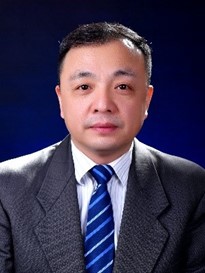
Quan Pan is a professor at the School of Automation and the School of Cyberspace Security (National Secrecy Academy) of Northwestern Polytechnical University. He is Director of the Ministry of Education Key Laboratory of Information Fusion Technology and the Shaanxi Provincial Engineering Research Center for Secure Control of Intelligent Equipment Systems. He received his Ph.D. in Automatic Control from Northwestern Polytechnical University in 1997. He has led over 100 major research projects, including National Science and Technology Major Projects and NSFC key projects. He has received the First and Third Prizes of the National Science and Technology Progress Award. His honors include National Outstanding Science and Technology Worker, China Youth Science and Technology Award, and the State Council Special Government Allowance. His research interests include information fusion, target tracking and recognition, deep learning, UAV navigation and control, polarization spectral imaging, industrial control system security, and modern cryptography applications.

Ding Liu is a professor of Control Science and Engineering at Xi’an University of Technology. He received his Ph.D. in Systems Engineering from Xi’an Jiaotong University and conducted research in artificial intelligence and intelligent control at the University of Fukui, Japan. He has led over 20 major national and provincial research projects, including the National “863” and “973” Programs, the National Key New Product Program, and key projects supported by the National Natural Science Foundation of China. He holds more than 20 authorized Chinese invention patents and 2 U.S. invention patents. As the first contributor, he has been honored with the National Technological Invention Award (Second Prize, 2012), and several provincial and ministerial science and technology awards. His current research interests include the formation mechanism and control of electronic-grade silicon single crystal quality, modeling and optimal control of ultra-large power plant boiler flue-gas systems, and intelligent robot control.
Abstract:With the rapid development of automation and control technologies, educational reform in this field has entered a critical stage. In this development forum, we are honored to invite distinguished experts and professors from leading universities to share their insights and achievements. The invited talks will cover key topics including high-level talent cultivation in the intelligent era, measurement and control engineering talent reform, AI-enabled education reforms, innovation training for graduate students, disciplinary development strategies, regional efforts supporting industrial growth, and aerospace-focused training models. This forum is intended to provide both theoretical guidance and practical reference for building a high-quality education system and fostering top-tier professionals for the intelligent era. This forum also offers valuable opportunities for participants to engage with experts, exchange ideas, and explore collaborative pathways in the evolving landscape of automation education.
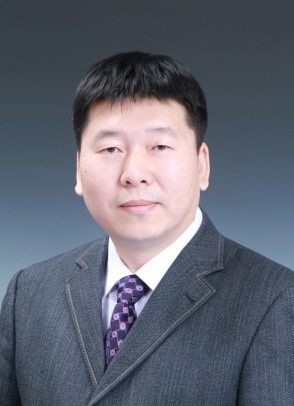
Speaker: Tao Zhang, Tsinghua University, China
Title: High Level Talent Cultivation in the Field of Automation in the Era of Intelligence
Abstract: By reviewing the development history of automation, this talk introduces the new directions for disciplinary development proposed by the Department of Automation at Tsinghua University in the era of intelligence, namely intelligent unmanned systems, industrial intelligence, intelligent health and bioinformatics, and brain intelligence and machine intelligence. Around the new direction of disciplinary development, the Department of Automation has proposed and implemented a series of specific measures to cultivate high-level talents in the field of automation.
Tao Zhang, PhD, Professor and Doctoral Supervisor at Tsinghua University, Head of the Department of Automation at Tsinghua University, Vice Dean of the School of Information Science and Technology, and member of the Electronic Science and Technology Commission of the Ministry of Industry and Information Technology, IEEE/IET/AAIA Fellow, Fellow/Director of the Chinese Association of Automation, Executive Director of the Chinese Simulation Federation, member of the Robotics Technology Committee of the International Federation of Automatic Control (IFAC), Chief Scientist of the National Key Research and Development Program. Engaged in long-term research in fields such as intelligent robots, artificial intelligence technology, and control theory. He has hosted or participated in over 30 projects, including the National 863 Program, National 973 Program, National Key R&D Program, and National Natural Science Foundation of China. Published over 200 papers, authored more than 10 academic monographs, translated works, and edited textbooks, and obtained over 30 authorized invention patents. Has won the National Teaching Achievement Award, Beijing Science and Technology Progress Award, Hubei Province Technology Invention Award, China Aviation Society Science and Technology Award, Technology Invention Award of Chinese Associate of Automation, and Ministry of Education Natural Science Award.
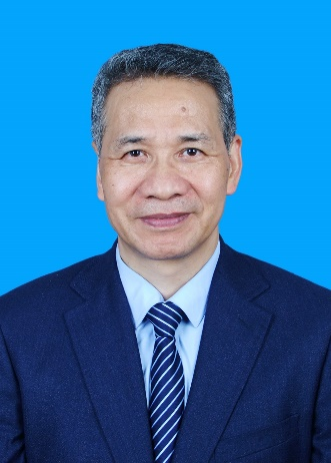
Speaker: Changhua Hu, Rocket Force University of Engineering, China
Title: “Three Connection and Three Combinations”—Reform and innovation of Talent Cultivation Mode for Measurement and Control Engineering Major
Abstract: Rocket Force University of Engineering is known as the cradle of china strategic missile force officers. Recently, the Measurement and Control Engineering Major establishes the concept of talent cultivation through the integration of technology and instruction such as “thick foundation, wide job position, and strong momentum”, construct the knowledge, ability and quality model of talent cultivation, and the talent training program for the missile Measurement and Control Engineering Major such as “War education connection, Job position coupling, Model connectivity, Course integration, Professional fusion, Platform integration”, abbreviated as “Three Connection and Three Combinations”. Further, this major construct the textbook and course content system of “Model connectivity and Course integration”, the comprehensive practical teaching platform of “Professional fusion and Platform integration”, and build a team of first-class teaching masters of knowing the war and understanding the war. Finally, the report introduces the experience, practices, and effectiveness of construction such as characteristic ideological and political guidance in teaching, and National University Huang Danian style Teacher Team.
Changhua Hu received the PhD degree in Control Science and Engineering from Northwestern Polytechnical University, China in 1996. From 1990, He has been working at Department of Control Engineering from Rocket University of Engineering. Now, he is a technical major general, and also is Director of the Key Laboratory of Missile Intelligent Combat Application, Ministry of Education. Prof. Hu is National Distinguished Teacher winner, Changjiang Scholar Chair Professor, Winners of National Outstanding Youth Fund and Fellow of the Chinese Society of Automation, and the team he leads is rated as National University Huang Danian style Techer Team.
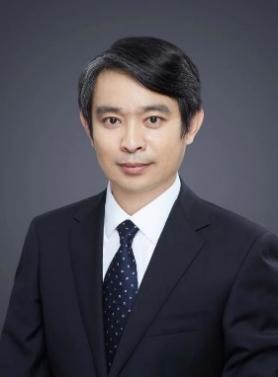
Speaker: Jian Sun, Beijing Institute of Technology, China
Title: Artificial Intelligence Empowers Talent Cultivation - Taking the School of Automation, Beijing Institute of Technology as an Example
Abstract: The rapid development of new-generation artificial intelligence (AI) technology has brought historical opportunities to higher education. Against the backdrop of the two-way empowerment between AI and higher education, how to use AI technology to promote the cultivation of high-quality talents has become a hot topic. This talk discusses the ideas and measures for AI to empower the cultivation of high-quality talents in automation majors from several aspects, including curriculum system, platform construction, integration of competitions and innovation, and feedback evaluation mechanisms.
Jian Sun received the B.S. degree from the Department of Automation and Electric Engineering, Jilin Institute of Technology, Changchun, China, in 2001, the M.Sc. degree from Changchun Institute of Optics, Fine Mechanics and Physics, Chinese Academy of Sciences (CAS) Changchun, in 2004, and the Ph.D. degree from the Institute of Automation, CAS, Beijing, China, in 2007. He was a Post-Doctoral Research Fellow with Beijing Institute of Technology, Beijing, from 2007 to 2010. He was a Research Fellow with the Faculty of Advanced Technology, University of Glamorgan, Pontypridd, U.K., from 2008 to 2009. In 2010, he joined the School of Automation, Beijing Institute of Technology, where he has been a professor since 2013. His current research interests include networked control systems, autonomous unmanned systems, and security of cyber-physical systems. Dr. Sun is an Editorial Board Member of IEEE Transactions on Systems, Man, and Cybernetics: Systems, Science China Information Sciences, the Journal of Systems Science and Complexity, and Acta Automatica Sinica.
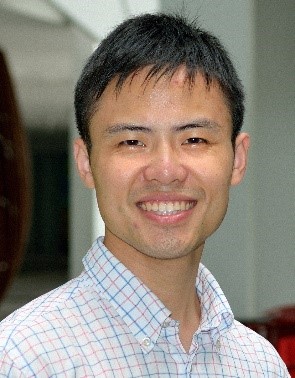
Speaker: Peng Cheng, Zhejiang University, China
Title: The Practice of Innovation Ability of Graduate Students in Control Science and Engineering Discipline in Zhejiang University
Abstract: The innovation ability has an important role on the improvement of overall quality of graduate students. This talk intends to introduce practice of Zhejiang University in Control Science and Engineering Discipline as an example. We analyze the target orientation, operation mode and mechanism of engineering doctoral training, summarize the practical measures of innovation ability cultivation of engineering doctoral students from several major aspects of meeting the national needs. The innovation points of innovation ability cultivation are condensed from aspects of cultivation concept, guidance mode, cultivation method, and etc.
Peng Cheng is currently dean, and Changjiang Chair Professor for college of control science and engineering, Zhejiang University. His research interests include cyber-physical systems, control system security and cloud networking. He has been awarded National State Science and Technology Progress Award, Natural Science Award of Ministry of Education, Youth Science Award of the Ministry of Education, CAA Science and Technology Progress Award. His research received IEEE INFOCOM’14 best demo award and IEEE IEEE ICCC’14 best paper award. He was elected as China Youth Science and Technology Award, FYT Foundation Young Teacher, JSPS Invitation Fellowship, IEEE ComSoc Asia Pacific Outstanding Young Researcher Award. He serves/served as Associate Editor of IEEE Transactions on Cloud Computing, IEEE Transactions on Control of Network Systems, Guest Editor of IEEE Transactions on Automatic Control, and vice director of CAA Committee for Industrial Control System Security, and of CAA Committee for Process Control.
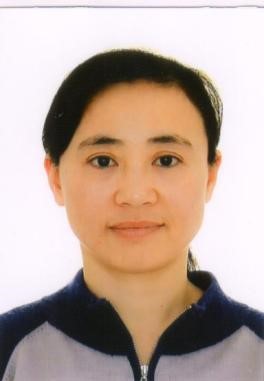
Speaker: Yalin Wang, Central South University, China
Title: Discipline Development of Control Science and Engineering at Central South University
Abstract: This report first gives a brief introduction about the School of Automation as well as the Control Science and Engineering Discipline at Central South University. Then, it elaborates on specific measures and actions undertaken for the discipline construction of Control Science and Engineering. Finally, it reports on the achievements resulting from these measures.
Yalin Wang is currently a full Professor at School of Automation, Central South University, Changsha, China. She received the B.Eng. degree in automation and the Ph.D. degree in control science and engineering from the Department of Control Science and Engineering, Central South University, in 1995 and 2001, respectively. She is currently a Professor with the School of Automation, Central South University. Her research interests include the intelligent modeling, optimization decision-making and control for complex industrial processes. Now, she is the dean of the School of Automation, Leader of Natural Science Innovation Research Group of Hunan Province, Leader of Science and Technology Innovation Team of Hunan Province. She has presided over national key R&D plan projects, key projects of major research plans of the National Natural Science Foundation, and major project topics. She has won 2 national science and technology second prizes and 6 provincial and ministerial science and technology first prizes. She has published over 100 academic papers and authorized over 50 national invention patents.

Speaker: Yang Cong, South China University of Technology, China
Title: South China University of Technology's Automation Efforts Empower the High-Quality Development of New Productive Forces in the Greater Bay Area
Abstract: South China University of Technology (SCUT)—also known as Hua Gong or Red Jia Gong—is one of the oldest “Project 985” engineering universities in the Guangdong–Hong Kong–Macao Greater Bay Area (GBA). Drawing on its deep engineering roots at the very heart of the GBA, SCUT fuels the region’s high-quality development of new-type productive forces. For decades, it has supplied tens of thousands of elite graduates who combine technological creativity with real-world industrial insight, continuously injecting core momentum into the area’s growth. Because of this, SCUT is widely acclaimed as both a “cradle of engineers” and a “cradle of entrepreneurs.” The School of Automation Science and Engineering currently offers three undergraduate majors—Automation, Intelligent Science and Technology, and Low-Altitude Technology and Engineering. Among them, the Automation program boasts a 65-year legacy and now underpins key emerging sectors in the GBA such as intelligent manufacturing, the industrial internet, embodied intelligence, robotics, and the low-altitude economy. Looking ahead, the School is aligning its talent-cultivation and discipline-building efforts ever more closely with regional industrial-upgrade needs, developing a distinctive training framework: an Innovation Class to strengthen cutting-edge research abilities; a dual-degree track in Automation & Mathematics to solidify mathematical foundations; and a newly launched dual-degree track in Automation & Management designed to nurture versatile leaders.
Yang Cong is currently a full Professor at School of Automation, Central South University, Changsha, China. She received the B.Eng. degree in automation and the Ph.D. degree in control science and engineering from the Department of Control Science and Engineering, Central South University, in 1995 and 2001, respectively. She is currently a Professor with the School of Automation, Central South University. Her research interests include the intelligent modeling, optimization decision-making and control for complex industrial processes. Now, she is the dean of the School of Automation, Leader of Natural Science Innovation Research Group of Hunan Province, Leader of Science and Technology Innovation Team of Hunan Province. She has presided over national key R&D plan projects, key projects of major research plans of the National Natural Science Foundation, and major project topics. She has won 2 national science and technology second prizes and 6 provincial and ministerial science and technology first prizes. She has published over 100 academic papers and authorized over 50 national invention patents is a recipient of China’s National Science Fund for Distinguished Young Scholars (NSF-DYS) and currently serves as Dean and Professor (doctoral supervisor) of the School of Automation, South China University of Technology. His research focuses on robotic vision, embodied intelligence, deep-sea exploration, and medical–engineering interdisciplinary studies. Prof. Yang is a Board Member of the China Society of Image and Graphics and Vice-Chair of the Youth Working Committee of the Chinese Association of Automation. He has led multiple national-level projects, including key programs under the National Key R&D Plan and the National Natural Science Foundation (instrumentation special projects and Distinguished Young Scholars program). As first contributor, he has twice received first-class provincial or ministerial awards, as well as the CAA Young Scientist Award and the Liaoning Provincial Youth Science and Technology Award. Prof. Yang has published more than 80 papers in leading international journals and conferences. He currently serves on the editorial boards of several prestigious journals, including multiple IEEE Transactions series and Acta Automatica Sinica.
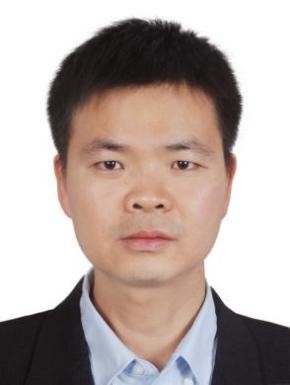
Speaker: Liu Zhunga, Northwestern Polytechnical University, China
Title: Exploration and Practice of an Automation Talent Cultivation Model with Aerospace Characteristics
Abstract: Higher education shoulders the heavy responsibility of cultivating outstanding talents in China's aerospace field. This report is led by the strong culture of educating teachers in the school, and combined with the implementation of the Action Plan for Cultivating First Class Talents by the School of Automation at Northwestern Polytechnical University, it introduces the achievements of our innovative automation talent training model from the aspects of consolidating ideological and political education, creating high-quality teaching resources, innovating scientific research and practical education, and expanding educational horizons.
Zhunga Liu, Professor at the School of Automation, Northwestern Polytechnical University. He obtained his bachelor's,master's and Ph.D degrees from Northwestern Polytechnical University in 2007, 2010 and 2013. He serves as vice dean of School of Automation at Northwestern Polytechnical University. His current research directions include artificial intelligence, pattern recognition, information fusion, machine learning, and more. Has won the first prize of Shaanxi Provincial Science and Technology Award and the first prize of Chinese Society of Automation Natural Science Award.